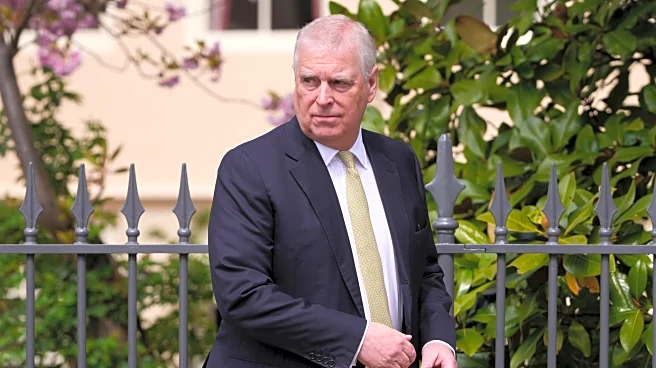Rapid Read • 8 min read
Uber CEO Dara Khosrowshahi has revealed that Waymo's autonomous vehicles (AVs) are outperforming human drivers in terms of daily completed trips. This statistic is part of the early results from Uber's partnership with Waymo, which currently operates AVs in Atlanta and Austin. Khosrowshahi emphasized the need for Uber to demonstrate the financial viability of self-driving cars to investors. He noted that the competition from self-driving cars will likely coexist with human drivers in Uber's network for the next decade, potentially improving traffic safety due to the superior driving choices of AV technology. Uber is also investing in other AV ventures, including a $300 million investment in electric vehicle-maker Lucid and collaboration with software startup Nuro.
AD
The integration of autonomous vehicles into Uber's network represents a significant shift in the ride-sharing industry, potentially leading to increased efficiency and safety. The ability of Waymo's AVs to complete more trips than human drivers suggests a future where self-driving technology could dominate urban transportation. This development could impact Uber's gig-worker drivers, who may face increased competition from AVs. Additionally, the success of AVs could attract more investment into the sector, accelerating the transition to autonomous transportation. The coexistence of human drivers and AVs may also lead to new regulatory and operational challenges for Uber and similar companies.
Uber plans to expand its AV operations, aiming to increase the number of Waymo vehicles in Atlanta and Austin. The company is exploring various models for owning and managing self-driving cars, including partnerships for fleet ownership and fare-sharing with individual owners. As Uber continues to develop its AV strategy, it will need to address concerns from human drivers regarding vehicle costs and road navigation challenges faced by AVs. The broader adoption of AVs may also prompt regulatory changes and require adjustments in urban infrastructure to accommodate autonomous technology.
The rise of autonomous vehicles raises ethical and legal questions about liability in the event of accidents and the impact on employment for human drivers. As AV technology becomes more prevalent, there may be cultural shifts in how society views transportation and mobility. The potential for safer streets through AV technology could lead to long-term changes in urban planning and public policy, emphasizing the need for infrastructure that supports autonomous vehicles.
AD
More Stories You Might Enjoy













